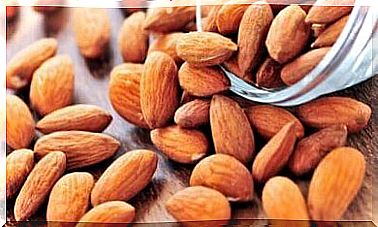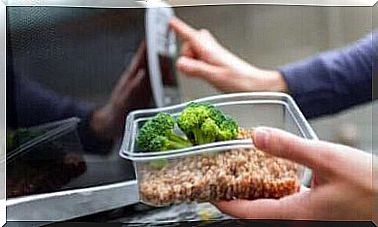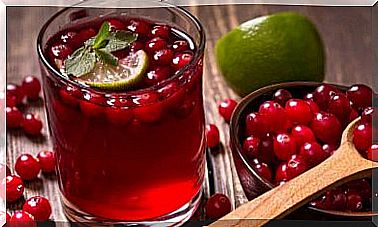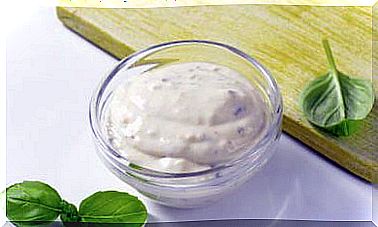The Role Of Diet In Inflammatory Bowel Disease

Malnutrition is a common feature of people with digestive problems, which is why diet is very important; especially when it comes to inflammatory bowel disease. This is because what you eat can reduce and relieve your symptoms. Keep reading to find out more about it.
The digestive tract suffers from all sorts of conditions that can affect one’s state of health, and inflammatory bowel disease (IBD) is one of them. Thus, this term describes chronic diseases of the digestive tract that are characterized by inflammation and that occur for unknown reasons.
The two most common types of IBD are chronic ulcerative colitis (CUC) and Crohn’s disease (CD). In addition, there is a third type known as indeterminate colitis, it shares characteristics of the previous two, and as it develops, it can occasionally be identified with one or the other.
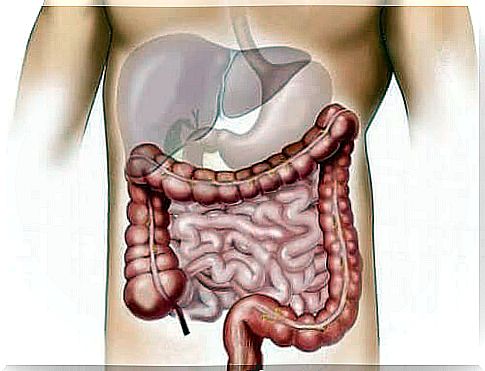
Characteristics of inflammatory bowel disease
Crohn’s disease
This can affect any part of the digestive tract, but the most common areas are the distal small intestine and the upper large intestine. The lesions are divided and can damage all layers of the intestinal wall.
Also read: How to live with Crohn’s disease: Three tips
Ulcerative colitis
It only affects the colon and rectum. In addition, the lesions are continuous and occur on the mucosa and the submucosal membrane. These diseases alter the function of the immune system in the digestive tract and it leads to a prolonged inflammatory reaction.
Symptoms of inflammatory bowel disease
The most common symptoms of both conditions are severe colic and chronic bloody diarrhea. But there can also be weight loss, malnutrition, fever and skin and joint damage.
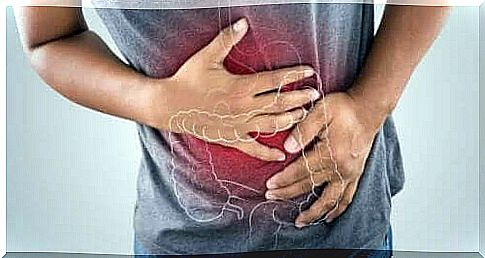
Damage to the intestinal mucosa causes various associated nutritional problems, such as:
- Anorexia.
- Edema.
- Anemia.
- Dehydration.
- Loss of proteins and vitamins.
- Change in mineral balance such as zinc, iron, magnesium, calcium and selenium.
Causes of malnutrition
Malnutrition occurs due to various factors such as:
- Decreased food intake.
- The disease leads to pain, diarrhea and vomiting.
- Exclusion of certain foods.
- Increased demands on fever, stress and protein loss.
- Nutrient malabsorption.
- Interaction between drugs and nutrients. (According to FEAD, the drugs used to treat these disorders are anti-inflammatory drugs, corticosteroids, immunosuppressants and antibiotics).
What to eat if you suffer from inflammatory bowel disease
Note that all types of IBD have remission phases, but there are phases where symptoms recur with acute episodes. Therefore, the diet should depend on the stage you are at. A healthy diet plan can be managed without unnecessary restrictions when there are no symptoms.
In case of acute periods, adjust your diet to meet nutritional needs. The key is that you make several meals during the day, drink plenty of water and avoid extremely cold temperatures.
The short chain low carb diet or FODMAP is beneficial in any treatment. Remember that the diet must have the following proportions:
- 50 to 60% of the calories should be carbohydrates.
- 15 to 20% protein.
- 25 to 30% fat, with limitation if there is a loss due to diarrhea.
Also read: The FODMAP Diet Plan: Why You Should Try It
We must not forget that in some cases, severe malnutrition can develop with intestinal compromise. In this situation, the solution is intravenous nutrition.
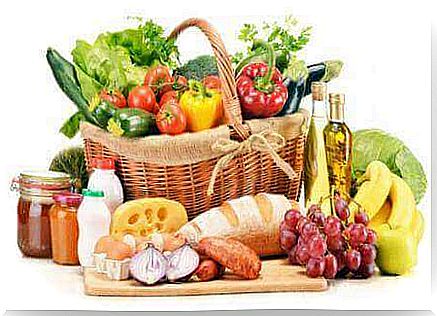
Types of foods to avoid when there are symptoms
You should avoid foods that produce flatulence and discomfort in the symptomatic phase. Among them are:
- Legumes and grains.
- Dairy products, mainly milk.
- Potatoes, sweet potatoes, corn, cassava, garlic, onions, cabbage.
- Hard and spicy cheeses.
- Fresh and dried fruits.
- Honey, sugar, sweets, syrups and jams sweetened with xylitol or sorbitol.
- Processed meat, sausages and derivatives.
- Alcoholic, carbonated beverages and soft drinks, fermented beverages and coffee.
- Spicy or spicy food.
In addition, you should assess whether there are vitamin and mineral deficiencies. You can resort to supplements in these cases.
Diet to be followed when there are no symptoms
Because of all of the above, you should gradually reintroduce restricted foods when the symptoms go away. In general, you can start with:
- Cooked vegetables rich in soluble fiber such as squash, courgettes, carrots and beets.
- Steamed or baked fruits such as apples, ripe bananas, apricots, peaches, pears.
- Refined cereal products and derivatives thereof.
- Low fat pieces of meat like fish and chicken.
Also note that it can take several weeks to make progress in the diet and it needs to be individualized according to the needs of the individual patient. The time between one progression and another depends on the symptoms.
Finally, the key to eating in case of inflammatory bowel disease is to adapt the diet plan to the individual patient’s symptoms and phases.
